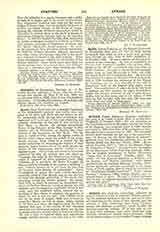

Ayeta, FRAY FRANCISCO DE, a Spanish Franciscan of the seventeenth century, and (while time and place of his birth and death are not known as yet, his memorable deeds having been overlooked and neglected until now) one of the most deserving and energetic characters of the end of that century in New Spain or Mexico. He became successively Visitor of the Province of the Holy Evangel of New Mexico, and its Procurator at Madrid; also Commissary of the Inquisition in New Spain. The decline in useful activity among the regular orders in Mexico, which began about the middle of the seventeenth century, being taken as a pretext by the secular authorities for despoiling the regulars of their missions, Ayeta became one of the most fervent defenders of the Franciscans, and he wielded a very aggressive pen. Three books are known to have been published by him, all without date and place; an “Apologia del orden de San Francisco en America“, which is supposed to have appeared about 1690; “Defensa de la provincia del Santo Evangelio de Mexico sobre la retencion de los curatos y doctrinas”; and “Ultimo recurso de la provincia de San Jose de Yucatan sobre despojo de parroquias”. Ayeta investigated in person the most remote missions, especially those of New Mexico, and he was the first to warn the Spanish authorities of the storm then preparing among the Pueblo Indians. His report, from 1678, in which he exposed the defenseless condition of the New Mexican colony as against the wild Indians, and the dangerous impression which it had made upon the sedentary tribes, induced the authorities of New Spain to reinforce the garrison at Santa Fe, but it was too late. The Pueblos broke out on the tenth of August, 1680, and for fourteen years New Mexico was lost to Spain. Ayeta hurried to El Paso, and when the fugitives from the North reached that post, to the number of two thousand famished and attenuated persons, Ayeta was the first to tender them the needed relief in food and clothing. He was a man of superior mind and indomitable energy, entirely devoted to his task and to his order.
AD.F. BANDELIER

